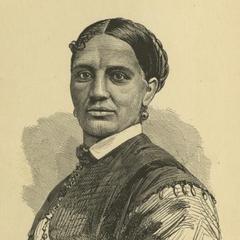John Lancaster Spalding Quotes - Page 2
The common man is impelled and controlled by interests; the superior, by ideas.
John Lancaster Spalding (1901). “Aphorisms and Reflections: Conduct, Culture and Religion”
John Lancaster Spalding (1901). “Aphorisms and Reflections: Conduct, Culture and Religion”
If we are disappointed that men give little heed to what we utter is it for their sake or our own?
John Lancaster Spalding (1901). “Aphorisms and Reflections: Conduct, Culture and Religion”
We are not masters of the truth which is borne in upon us: it overpowers us.
John Lancaster Spalding (1901). “Aphorisms and Reflections: Conduct, Culture and Religion”
Worry, whatever its source, weakens, takes away courage, and shortens life.
John Lancaster Spalding (1900). “Opportunity: And Other Essays and Addresses”
John Lancaster Spalding (1901). “Aphorisms and Reflections: Conduct, Culture and Religion”
John Lancaster Spalding (1901). “Aphorisms and Reflections: Conduct, Culture and Religion”
It is unpleasant to turn back, though it be to take the right way.
John Lancaster Spalding (1901). “Aphorisms and Reflections: Conduct, Culture and Religion”
John Lancaster Spalding (1901). “Aphorisms and Reflections: Conduct, Culture and Religion”
John Lancaster Spalding (1901). “Aphorisms and Reflections: Conduct, Culture and Religion”
John Lancaster Spalding (1901). “Aphorisms and Reflections: Conduct, Culture and Religion”
John Lancaster Spalding (1901). “Aphorisms and Reflections: Conduct, Culture and Religion”
John Lancaster Spalding (1901). “Aphorisms and Reflections: Conduct, Culture and Religion”
John Lancaster Spalding (1901). “Aphorisms and Reflections: Conduct, Culture and Religion”
"Aphorisms and Reflections" by John Lancaster Spalding, (pp. 180-181), 1901.
If all were gentle and contented as sheep, all would be as feeble and helpless.
John Lancaster Spalding (1901). “Aphorisms and Reflections: Conduct, Culture and Religion”
John Lancaster Spalding (1901). “Aphorisms and Reflections: Conduct, Culture and Religion”
John Lancaster Spalding (1901). “Aphorisms and Reflections: Conduct, Culture and Religion”
John Lancaster Spalding (1901). “Aphorisms and Reflections: Conduct, Culture and Religion”
John Lancaster Spalding (1901). “Aphorisms and Reflections: Conduct, Culture and Religion”
John Lancaster Spalding (1901). “Aphorisms and Reflections: Conduct, Culture and Religion”
John Lancaster Spalding (1901). “Aphorisms and Reflections: Conduct, Culture and Religion”
It is the business of the teacher ... to fortify reason and to make conscience sovereign.
"Aphorisms and Reflections" by John Lancaster Spalding, (p. 242), 1901.







